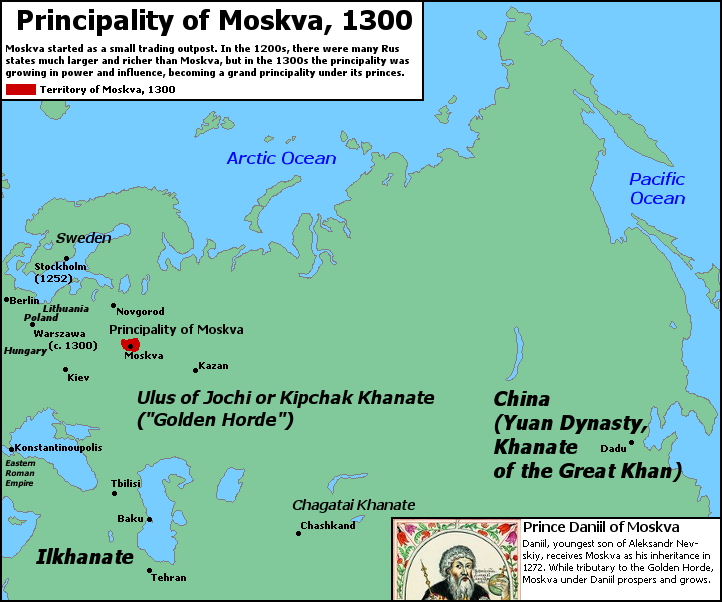

Principality of Moskva, 1300
Moskva started as a small trading outpost. In the 1200s, there were many Rus states much larger and richer than Moskva, but in the 1300s the principality was growing in power and influence, becoming a grand principality under its princes.
Prince Daniil of Moskva
Daniil, youngest son of Aleksandr Nevskiy, receives Moskva as his inheritance in 1272. While tributary to the Golden Horde, Moskva under Daniil prospers and grows.
Comments
Prince Aleksandr Nevskiy had four sons and a daughter. As was usually in Rus culture, Nevskiy married off his daughter to a Rus prince, possibly to build political connections. On his death, his sons each inherited their own principalities from his lands. Daniil, being the youngest of the four and a small child (he was only two years old when his father died), received the smallest and least valuable, the Principality of Moskva. There were many other Rus states larger and richer than Moskva, including Novgorod, Tver, and Vladimir-Suzdal. No one at the time would have believed that Rus/Russia would eventually be united under Moskva.
For a Rus prince, Daniil was quite peaceful, only participating in a battle once. The battle was a significant victory for him, as he defeated the prince of Ryazan, who with help from the Tatars was trying to take over Moskva. Daniil also allied with other Rus princes and sent his army to assist them in their struggles, usually against other Rus princes. This ended up benefiting him greatly, as a childless ally left Daniil his principality on his death. At home, Daniil ruled Moskva peacefully, which helped the city to grow and prosper. Few of the subsequent rulers of Moskva would be as peaceful as Danill.